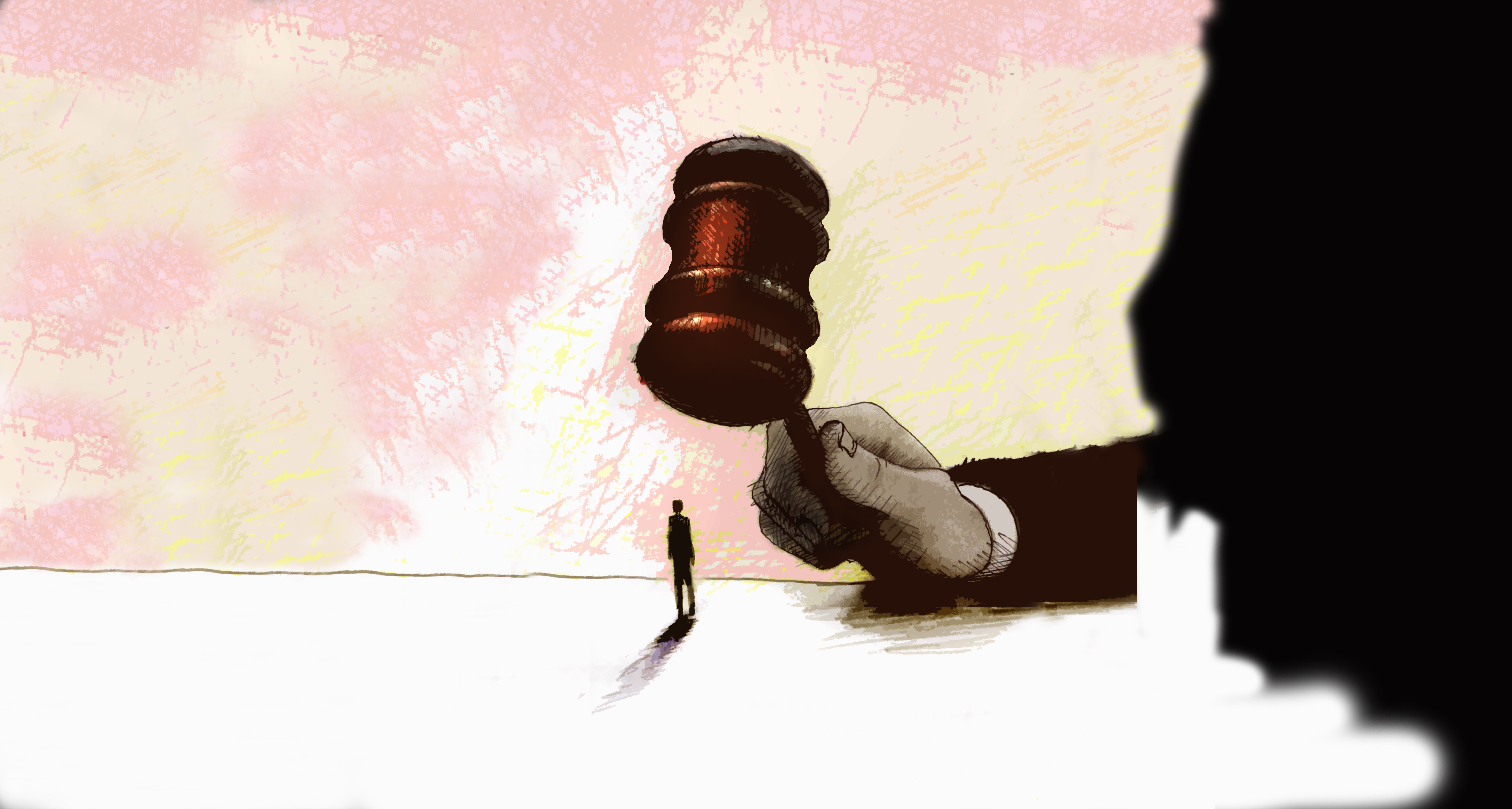Don't judge me
Experts agree: It's not good for you to focus on the perceived faults of others.


A free daily email with the biggest news stories of the day – and the best features from TheWeek.com
You are now subscribed
Your newsletter sign-up was successful
Ever since the first art critic looked at a cave wall and thought, "Gronk's saber-toothed tigers really suck; they look more like wooly mammoths," humans have been judging one another.
Times may have changed, but we haven't stopped judging one another: looking askance at the woman in the too-revealing dress; mercilessly mocking the politician who gets caught picking his nose on live TV; verbally eviscerating those with whom we disagree.
We humans simply revel in judging others.
The Week
Escape your echo chamber. Get the facts behind the news, plus analysis from multiple perspectives.

Sign up for The Week's Free Newsletters
From our morning news briefing to a weekly Good News Newsletter, get the best of The Week delivered directly to your inbox.
From our morning news briefing to a weekly Good News Newsletter, get the best of The Week delivered directly to your inbox.
And with the advent of the internet, a whole new universe of judginess has opened up, with trolls casting commented aspersions left and right, body shaming (even supermodels get it), and now, a "Yelp for people."
What gives? Why do we do this to one another? And is it possible to stop?
There are a few reasons we humans are inclined to judge one another. For one thing, it's just easier to lump other people into categories based on a generalized perception of them. You don't have to use as much mental energy to assume "Oh, she's an unpleasant person," when a new co-worker fails to smile a lot. If you actually have to think about that person in a more complex context — about her relationships, her circumstances, her cultural identity, her upbringing, and more — your brain has to work a lot harder to come to a more complex conclusion about her. Sometimes we judge simply because we're a little lazy.
In other cases, judgment is defensive. Survival instinct makes us wary of the unknown, and quick to lash out if we fear another person might harm us, or even be in a position to harm us. Donald Trump's vitriolic attacks on his business, social, and political opponents are a classic example of this; when The Donald calls someone a "loser," or derides an opponent's intelligence or physical appearance, he is responding to a perceived threat — with a judgment.
A free daily email with the biggest news stories of the day – and the best features from TheWeek.com
And we are human, after all. Our humanly unique sense of self is partially framed and reinforced by our awareness of that self in relation to others. It's only human nature to hope you might be in some way "better" than others — smarter, possessing of higher status, more resources, and greater physical attractiveness — even if that's not always the case. From there, it's only a short step toward actively seeking out the more negative aspects of others to feel better by comparison. And once we've begun to indulge in those self-gratifying judgments, it's hard to stop. How else can you explain American's fascination with reality TV? Next to Honey Boo-Boo and the Duggars, we all look pretty good, right?
Wrong.
What you notice and say about others says a lot about you. A 2010 Wake Forest University study concluded:
This research suggests that when you ask someone to rate the personality of a particular coworker or acquaintance, you may learn as much about the rater providing the personality description as the person they are describing. The level of negativity the rater uses in describing the other person may indeed indicate that the other person has negative characteristics, but may also be a tip off that the rater is unhappy, disagreeable, neurotic — or has other negative personality traits. [Wake Forest]
Research has also shown that people who seek out and comment upon negative traits and behaviors in others are often highly anxious about those very same traits in themselves. As author and lecturer Brenė Brown notes, "If I feel good about my parenting, I have no interest in judging other people's choices. If I feel good about my body, I don't go around making fun of other people's weight or appearance. We're hard on each other because we're using each other as a launching pad out of our own perceived deficiency."
So the next time you feel the urge to snark about the way your brother-in-law tries to dominate every conversation, spend a few minutes listening to yourself. You might just realize it's time for you to pipe down, too.
Need more reason to curtail that instinct to be a hater? Consider this: Unjust criticism may be hurtful to others , but it hurts those who over-indulge in it even more. Just as those who spend a lot of time in the water fixate on the extremely rare shark attack while ignoring the much more prevalent (but still almost non-existent) threat of lightning on land, folks who over-focus on negativity will eventually only see what they spend time thinking about: the bad stuff.
Conversely, those who actively work to see the good in others (even when they have to dig around a little for it) end up the happier for it.
Judgment is never going to go away. It's a deeply entrenched element of our psyche that — at one point in our evolution — served a purpose. However, just as we as a species have evolved, so should our ability to manage the impulses that drive us, if not for the good of our species, than at least for the essential happiness and survival of ourselves.
Leslie Turnbull is a Harvard-educated anthropologist with over 20 years' experience as a development officer and consultant. She cares for three children, two dogs, and one husband. When not sticking her nose into other peoples' business, she enjoys surfing, cooking, and writing (often bad) poetry.
-
 Minnesota's legal system buckles under Trump's ICE surge
Minnesota's legal system buckles under Trump's ICE surgeIN THE SPOTLIGHT Mass arrests and chaotic administration have pushed Twin Cities courts to the brink as lawyers and judges alike struggle to keep pace with ICE’s activity
-
 Big-time money squabbles: the conflict over California’s proposed billionaire tax
Big-time money squabbles: the conflict over California’s proposed billionaire taxTalking Points Californians worth more than $1.1 billion would pay a one-time 5% tax
-
 ‘The West needs people’
‘The West needs people’Instant Opinion Opinion, comment and editorials of the day
